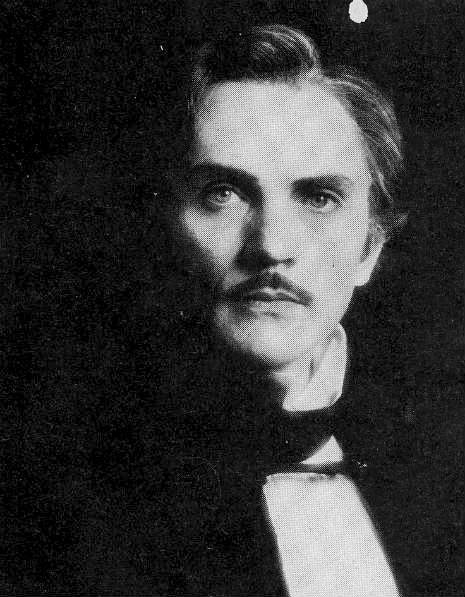
Terence Stamp and Michael Caine once shared an apartment in the early 1960s. Stamp was the star, with Billy Budd, Term of Trial and The Collector to his CV, while Caine was still on his way up. The turning point came when Stamp knock-backed the title role of Alfie, a role he had made his own on Broadway, but didn’t want to reprise on film. Caine spent a long night trying to change Stamp’s mind. He failed and the role was given to Caine.
Years later, Michael Caine wrote how he sometimes dreamt of that long night trying to convince Stamp to take the role, and “still wakes up sweating as I see Terence agreeing to accept my advice to take the role in Alfie.”
Stamp made Modesty Blasie instead, which on paper sounded fabulous - directed by Joseph Losey; starring Monica Vitti and Dirk Bogarde; adapted by poet and writer Evan Jones from the best-selling Peter O’Donell comic strip. Sadly, it flopped, and the blue-eyed, angelic Stamp was slowly eclipsed by his former room-mate, Caine.
Yet, Stamp was no longer interested in making films for the sake of making films. He was beginning to choose roles because he wanted to make them. He turned down an incredible amount of work, as he later explained in an interview with Valerie Singelton in 1978:
‘I didn’t accept a lot of work because I was of the opinion, if one wanted the long career, one should do good, interesting things. One shouldn’t do anything.
‘So, that was a kind of a political decision really, apart from the fact I enjoyed to do things that interested me. It didn’t interest me to play Tate and Lyle lorry drivers, you understand? I did that already. I didn’t want to do that in a movie. I wanted to play princes and counts, and intellectuals and things that I wasn’t, rather than something I was.’
After Modesty Blaise, Stamp opted to work with radical film-maker Ken Loach, on his first movie Poor Cow, which co-starred Carol White. The film was a surprise hit in America, largely down to Stamp’s casting. He then appeared in John Schlesinger’s Far From the Madding Crowd with Julie Christie, Alan Bates and Peter Finch. Yet, for all his success, there was something missing.
‘And this thing which came later was a feeling of an inner emptiness success didn’t fill. I had assumed that this inner poverty would be transformed when I became rich and famous. And it took me a few years of being rich and famous to understand that the inner void was very much there.
‘And, you know, if I couldn’t fill it with one Rolls-Royce, I couldn’t fill it with three.
‘I started traveling and looking at myself. Looking, thinking the answer was outside still in a form of, you know, I transfered from beautiful female companion, to highly, holy, spiritualized person. So I was kind of looking for that in truth - it was an inner odyssey that was going on.’
Stamp moved to Italy and then onto an ashram in India, where he found he could get ‘Groovy Kashmiri hash or groovy golden guru - you get what you’re looking for.’ Here he was “transformed from Terence Henry Stamp to swami Deva Veeten.”
The years passed and the roles had dried-up, until (as in all good tales) one day in 1977:
‘On this particular morning, as we enter, I am hailed by the concierge who showed me to my original room. Apparently he remembers me. “Mr. Terence”, he says in an accent worthy of Peter Sellers. “We have a cable for you”. He extricates the telegram from the depths of his nightstand and presents it to me. Dog-eared, with tickertape strips glued onto the square envelope and smeared with dust, I have no idea how long the urgent missive has been waiting. However, as it is dropped into my palm it has the psychic weight of the English breakfast I am about to order. I read the typed front piece and realize why. It is addressed to: Clarence Stamp, The Rough Diamond Hotel, Dune, India. It is a miracle that it is even in my hand. Goose pimples spread up my arm and I have a sense that my life is about to change. The telegram is from my long-suffering agent James Fraser, who came across me playing Iago at the Webber-Douglas Drama Academy in 1958 and, bless his heart, has represented me ever since. The telegram reads: ‘Would you be prepared to travel back to London to meet Richard Donner regarding a role in the Superman films 1 & 2. You have scenes with Marlon Brando. Could you stop over in Paris to talk to Peter Brook who is going to make a film of George Gurujieff’s Meetings With Remarkable Men. I read it again. Can hardly believe it, but yes, it’s there, in the palm of my hand. And yes, my life is about to change.’
After Superman, Stamp was cast as the Count in a London production of Dracula, (one of several productions about the great undead vampire that had appeared on both sides of the Atlantic). It was during this production that the following interview with the BBC took place, where Terence Stamp explained, to interviewer Valerie Singleton the attraction of Count Dracula.
‘I always think of evil and the Devil being terribly groovy - not unattractive at all, they have to be really interesting and really seductive because that’s the magnetism of evil, you know, it has to be outwardly beautiful and fetching.’
With thanks to NellyM





